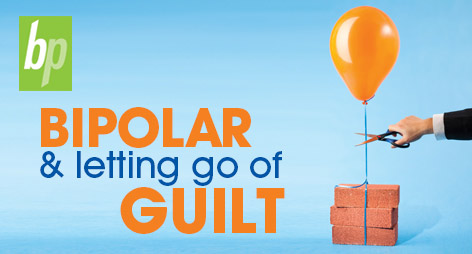
Ann R. knows that even on her best days it can be difficult to deal with the noise and chaos that comes with having a 6-year-old and 4-year-old twins. When she’s pulled down by bipolar depression, though, she finds it almost impossible to be the mother she wants to be. Then the guilt latches on and won’t let go.
She recalls an episode from this past winter that left her besieged by remorse. She’d arranged to take time off work to be with her children, but instead of celebrating a festive holiday with them, she retreated to her bedroom in a depressive fog.
“I spent four days in bed,” says Ann. “I feel guilty about that, and about knowing what I needed to do but not being able to do it. This is their childhood.”
Looking back at what happened during a mood episode can stir powerful emotions. It’s common to feel embarrassed, humiliated, ashamed, even worthless. There’s often regret, sharpened by fear that you’ve alienated people in your life. Realizing that you’ve caused hurt and hardship—a major wellspring of guilt—only compounds the pain.
Guilt can be a useful emotion that helps us humans maintain a moral compass. But when it moves from a healthy part of self-reflection to an all-consuming trap of negative self-talk, it’s time to stop the blame game and take action.
Denying or ignoring any harm you’ve caused isn’t healthy, but hanging on to negative emotions helps no-one. It’s important to confront feelings of guilt—which should include a reality check to discover whether those feelings are justified—then find tools and take actions to get past it.
That’s not to say it will be easy pry free of guilt’s powerful grip. To ponder just how powerful, note that the expression “weighed down by guilt” can be taken literally.
